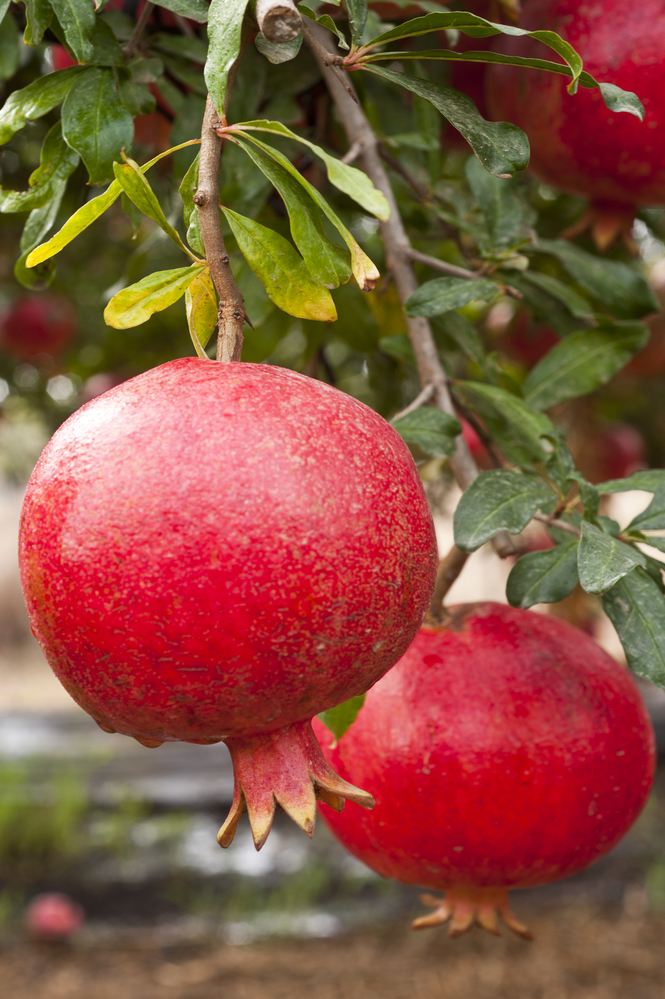Interested in producing a crop that tastes good and is full of nutrients, including antioxidants? Pomegranates provide Florida farmers that sweet option.
“The fruit and its products, such as arils and juice, are rich in phytochemicals and are considered a ‘superfood,’” said Zhanao Deng, a University of Florida environmental horticulture professor who’s trying to breed and grow more pomegranates in Florida.

Farmers can use the same orchards, equipment and facilities they use for citrus.
“We can produce fresh pomegranate fruit, arils and juice in July, which is at least two months earlier than growers in other states,” said Deng, a faculty member at the UF/IFAS Gulf Coast Research and Education Center (GCREC).
Locally grown pomegranates are scarce right now in the Sunshine State. The fruit grows on only about 100 acres across the state.
Deng is studying how to make sure pomegranates can resist or avoid pests and diseases and not drop fruit on the ground. Those research victories would mean increased yield for Florida growers. Eventually, he’d like to make the fruit even tastier.
About 90% of pomegranates grow in California in the United States. Florida’s wet season and its hot weather pose challenges to growing the fruit.
“In Florida, pomegranates can grow well but tend to have a lot of fruit rot from a number of fungal pathogens,” Deng said. “This results in low yield and poor fruit quality.”
To avoid severe fruit rot, Deng and his doctoral student, Alexander Schaller, defoliated the pomegranate plants at GCREC in December 2020, hoping to harvest ripe fruit soon after the rainy season begins in Florida, usually in June. To their surprise, this treatment not only has advanced the harvesting season to July but helped the plants produce a lot of more fruit.
Last week, Deng hosted Cindy Weinstein, president of the Florida Pomegranate Association, who wanted to see the fruit in Deng’s research field. Pomegranates normally mature in August and September in Florida, said Weinstein, who owns a farm in Hardee County.
“The sweetness and maturity of Dr. Deng’s fruit this time of year is fantastic,” she said. “Having mature pomegranates in June and July would greatly limit the use of fungicide. Having the fruit off the trees before the heavy rains of a hurricane season is a plus. Mature pomegranates in June and July will introduce fruit to the market early and extend the fresh pomegranate season in the United States. If pomegranates grow successfully in Florida, they’ll be one more specialty crop that producers can count on. The more you can choose from the better your chances of a good yield.”









